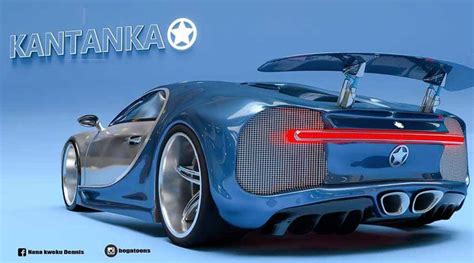Ghana is known to be one of the countries with the largest number of imported cars, and the main reason is that there a only a few manufacturing companies in the country. Reports indicate that, Ghana imports about 100,000 cars per year. On our roads, we see several cars from different car companies – Germany, Japan, USA, France, UK, Sweden, Italy, South Korea, Malaysia, China, etc, except a car made in Ghana by a Ghanaian.
Over the years, several companies have set up in the country, manufacturing and assembling vehicles. However, most of these companies are international, but amid these auto giants is Kantanka Automobile, a local car manufacturing company that has raised the standard and demystified the notion that Africans cannot make their own cars.
About Safo Kantanka
Apostle Safo, a multi-talented individual, is a preacher, inventor, innovator, biologist, agriculturalist, and philanthropist who aims to empower Africa through science and technology. Born in Bekwai, Ghana, Safo pursued his passion for science and technology after completing his education at Ghana Technical Institute and working as a welder at Volta Aluminum Company.

The Kantanka cars were not the first creation of Apostle Kwadwo Sarfo. He first fabricated electrical drums with brain units, loudspeakers, amplifiers, pre-amps, and so on due to his earlier training and love for music. He also fabricated sewing embroidery machines, a 26 Flat flat-screen sensor television (powered by human breath and turned off by the wave of a hand).
He started working with a range of different electronics as his understanding grew, including monitors for computers, stereos, televisions, incubators, and more. He concentrated his ideas on local resources, like utilizing wood for the casings instead of plastic, and technology that would make life easier, like clapping to turn on a TV instead of a remote control that could break in the dusty season.
The birth of Kantanka Motors
Kantanka Motors is by far the only car manufacturing company in the country owned by a Ghanaian. Katanka began manufacturing in the late 1990s in Gomoa Mpota. Apostle Safo first produced the “Katanka Saloon” in 1998 and later expanded to include the Cross Country four-wheel Drive “Kantanka Onantefo I” in 2006, Onantefo II in 2007, and a 26-foot-long stretch Limousine “Kantanka Obrempon” in 2007. The same year, he launched “Odeneho”, a solar-powered non-engine saloon car.

In 2012, Kantanka released “Daasebre,” a 4×4 vehicle which was steer-controlled by a wristwatch. In 2013, he introduced several vehicles, including the Kantanka Otumfuo, Kantanka Odeneho II, KTK 02, Kantanka passenger airliner, and Kantanka Bombookas, all powered by walking sticks.
Kantanka Automobile Company Ltd, a Ghanaian automaker, gained made-in-Ghana status after a collaboration with a Chinese business. The company expanded production capacity from one car annually to five cars per day. Despite facing criticism from academics, Kantanka has been certified by the Ghana Standard Authority and showcased demonstration projects like a defense helicopter, passenger airplane, and RPGs. The company’s cars are cheaper than most imported foreign cars in Ghana.
In March 2015, Kantanka Automobile Company Limited was registered to take over Vehicle Assembly, Manufacturing, and Sales. The first commercialized vehicle was registered on May 14, 2015, and the plant was officially commissioned on November 25, 2015. The company aimed to transfer technology and develop local capacity and expertise in the Ghanaian automotive industry.

Mass production began in 2016 with the company setting up its first showroom in 2018. It currently enjoys mass support and usage across West Africa, with patronage cutting across social classes.
Today, Kantanka has steadily gained a name for itself in the Ghanaian market and beyond, with politicians and celebrities using different models. Kantanka is produced in Kumasi, Ghana, with another assembly in the Central Region. It is headed by Kwadwo Safo Jnr, son of Safo Kantanka, who oversees his business empire as CEO.
Conclusion
Apostle Safo’s innovations and creations refute the notion that an African cannot build an automobile from the ground up. The lack of direct government financing, research and development (R&D), and political will for brilliant people like Apostle Safo has contributed to the African dilemma by stifling their innovative abilities. The phrase ‘Made in Ghana’ is a statement that gives us pride as Ghanaians, and the productions by the indigenous company continue to push Ghana toward the same pedestal as the Toyotas, the Volvos, and others.




